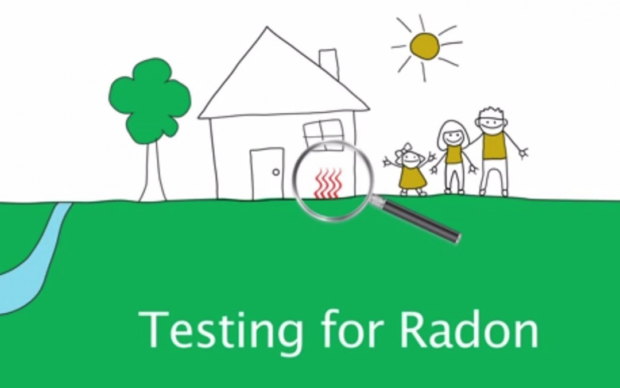Your home is the place where you should feel the safest and the most comfort. But, for many homeowners, there could be a silent killer seeping into your home right now. Radon is a chemical compound gas that leaches up through the soil and is the leading cause of lung cancer in non-smokers.

Radon poisoning can occur in any geographical area and should be tested for whenever you are buying or selling a home. Although a Radon test is not a legally required inspection, it has become a routine part of the real estate process.
Your family’s safety should always be a priority as well as protecting your investment in your home. To be safe make sure that all of the home inspections, including Radon testing, have been completed before you make a deal.
Testing Before You Sell
When you are selling your home or property it is in your best interest to be proactive about your home inspections. You don’t want to wait until the interested buyer comes back with their own tests showing you have problems. Radon testing is not yet mandatory in all states for a property sale, but it has become standard routine. Having a test done prior to selling your home could save you time and money that could be lost at your closing.
Silent Danger
Radon has been called the silent killer. It can be seeping into your home for a long time before it is detected. It has no odor, color or taste and will not be picked up by regular smoke alarms. The poisonous gas is then breathed into the lungs and can create carcinogenic tissues and tumors to form. Having a professional inspection done is the safest way to know if you have Radon in your home. Development of in-home detection systems is still in the testing phase.
Cancer Causing
Radon poisoning is the leading cause of lung cancer in non-smokers. The radioactive carcinogen that is sucked into the lungs can cause irreparable damage to the delicate tissues. As the tissue deteriorates, the lungs can become weaker over time. In many cases, tumors form where the radon has weakened the lungs. The radioactive nature of the compound will often activate dormant cells causing further cancer to develop.
Basements
Your basement is the most likely place in your home that you would find positive Radon levels. The radioactive chemical gas is formed deep in the earth’s crust and rises slowly to release into the atmosphere. It can easily seep into sub levels of your home through even the smallest cracks in your concrete slab or foundation.
In areas with warm summers and cold winters, homes are especially susceptible to foundation cracking. Areas like the Midwest, Pacific NorthEast and the Maritime states are all areas where high levels of Radon have been found in basements. Make sure that your basement is tested thoroughly along with the rest of your home and any cracks are sealed.



